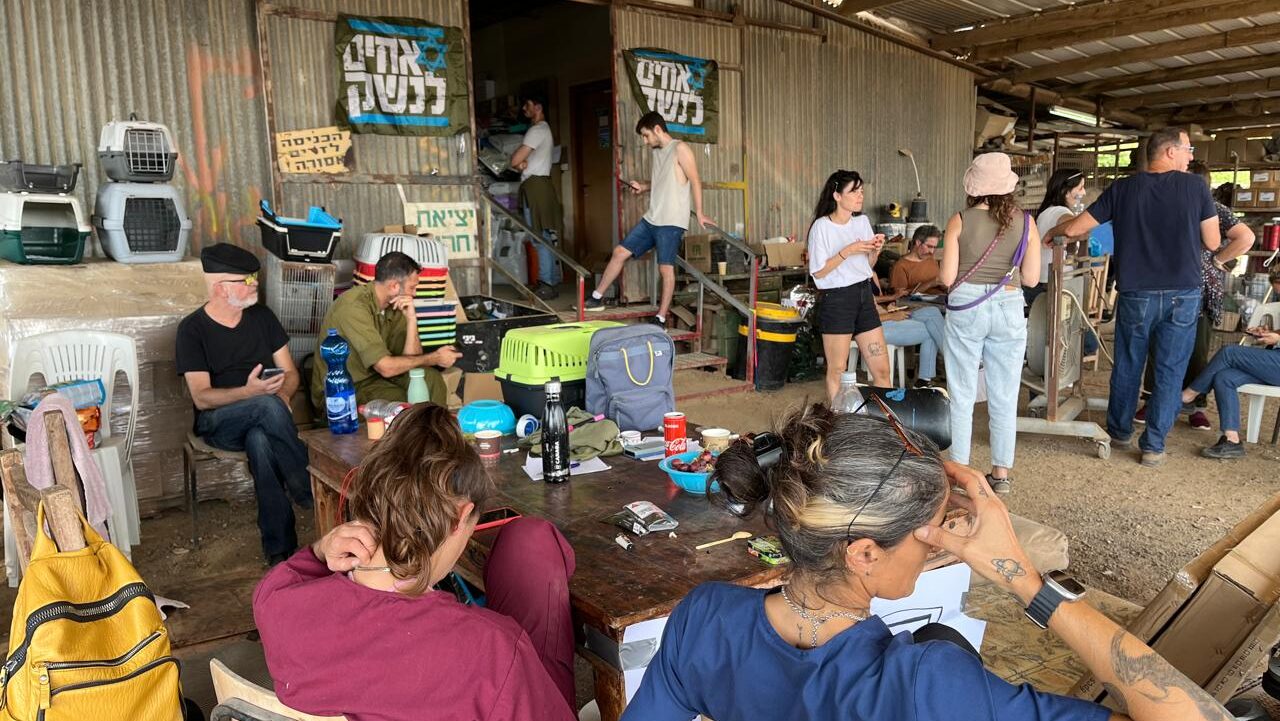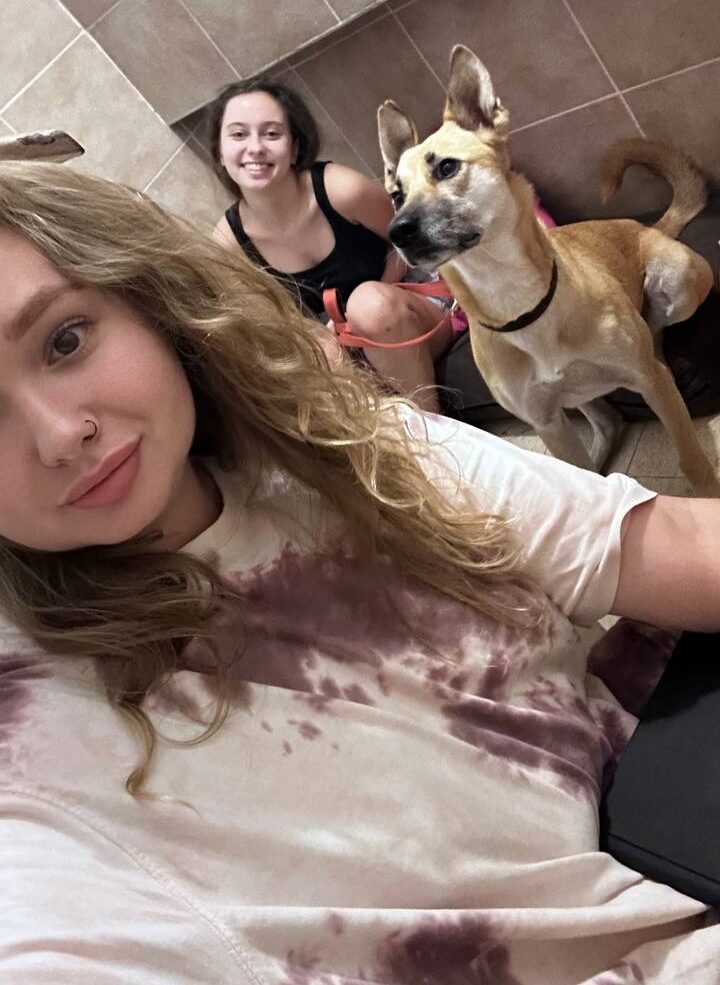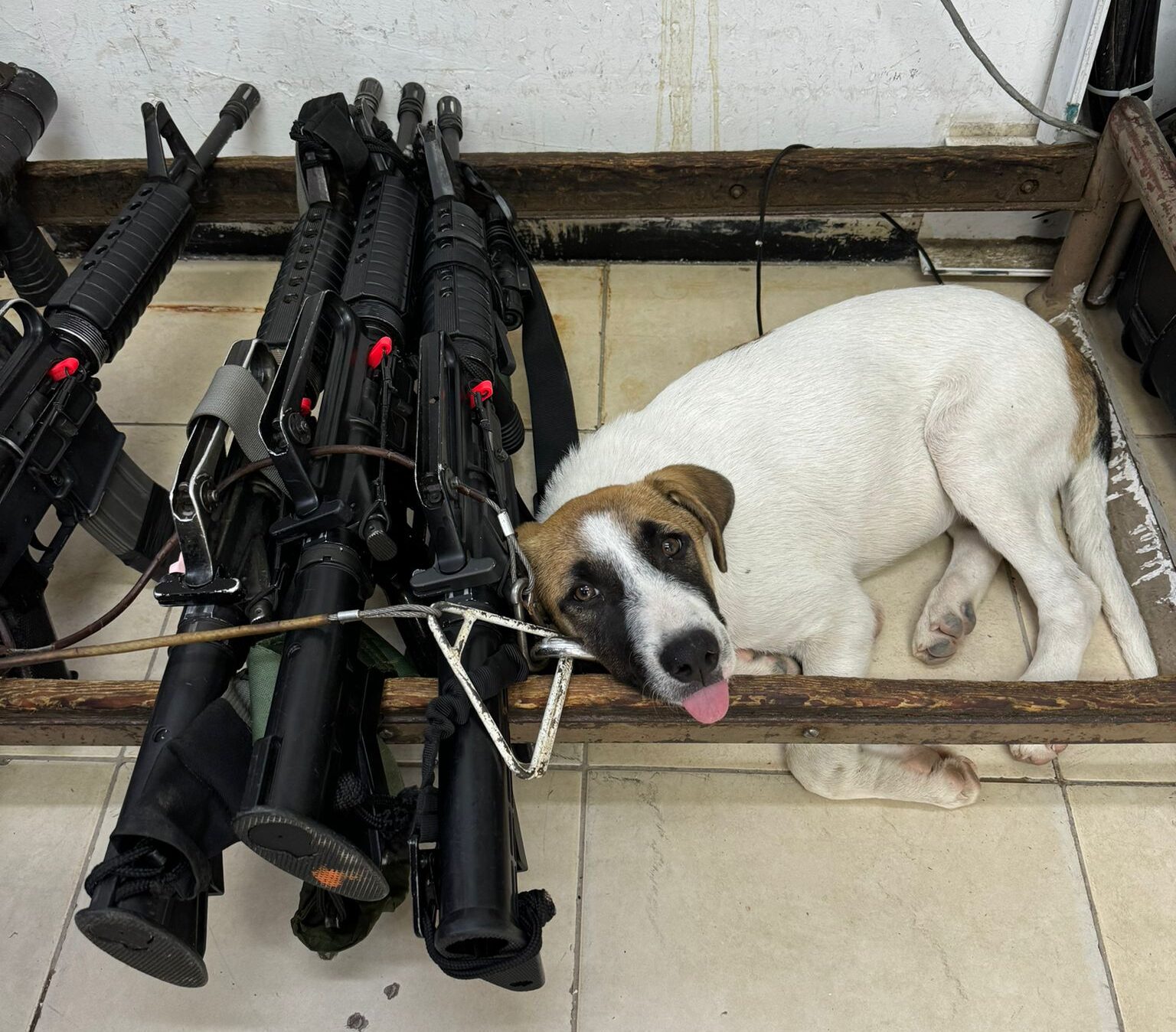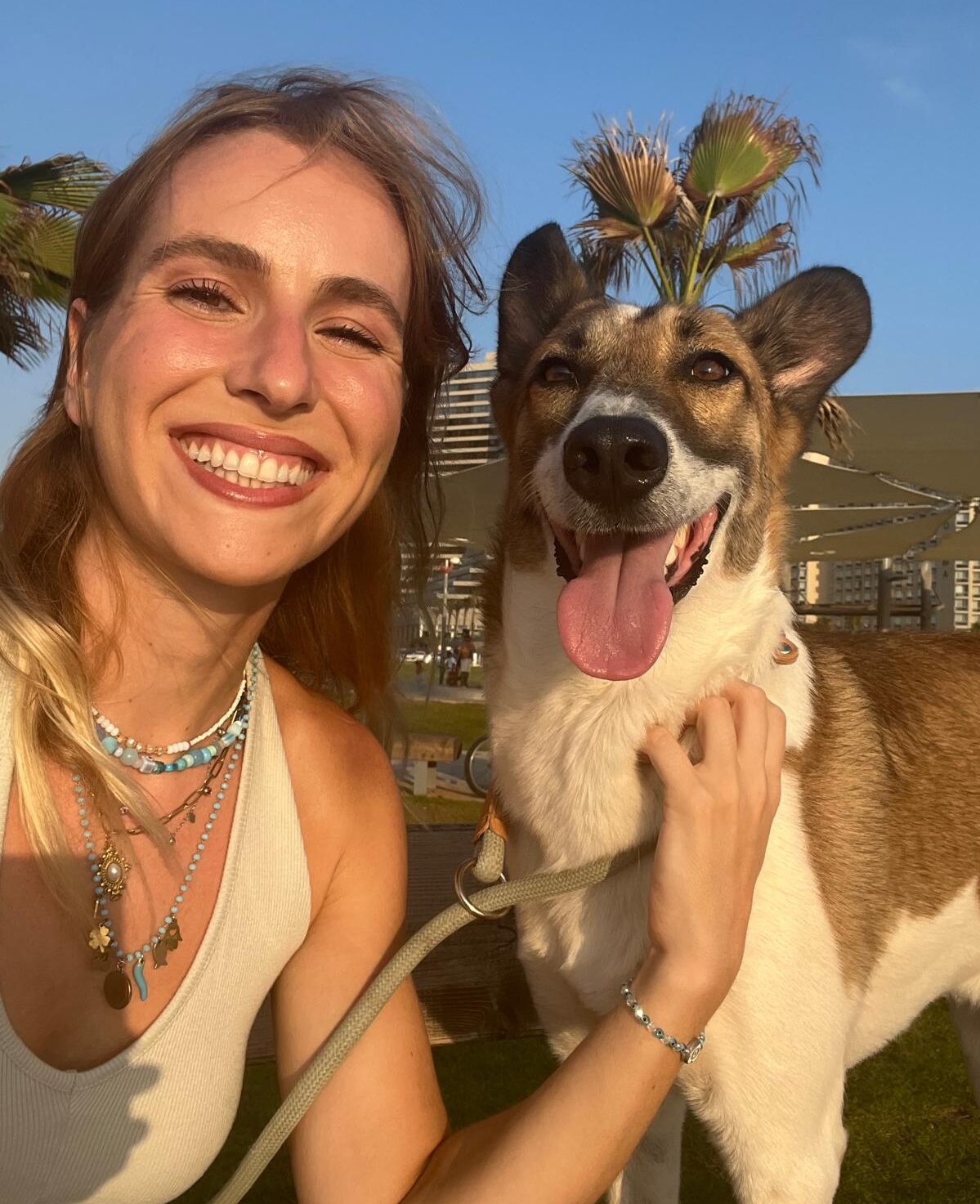Heartwarming Tales of Survival: Dogs Find New Homes Amid the Chaos of War
Despite the turmoil of the October 7 Hamas attack and ongoing conflict, volunteers, soldiers, and animal rescue organizations unite to save and rehome hundreds of traumatized pets
The terrorist attack by Hamas on Israel on October 7, 2023, caused irreparable damage to the country and its people. Many lost loved ones and their sense of stability and security. Ten months later, the conflict continues, with increased escalation in the north. This tragedy affected not only humans but also hundreds of pets, who became collateral victims, were killed, or lost their owners.
The impact on animals has been profound. Many pets were left wandering the streets, traumatized and homeless. Volunteers and animal rescue organizations have been working tirelessly to save these animals, providing them with care, shelter, and new homes.
On October 7, veterinarian and specialist in wild animal protection Dr. Shira Yishfa started the rescue operations, coordinating with two other operation rooms and rescuing around 1,200 dogs and cats.
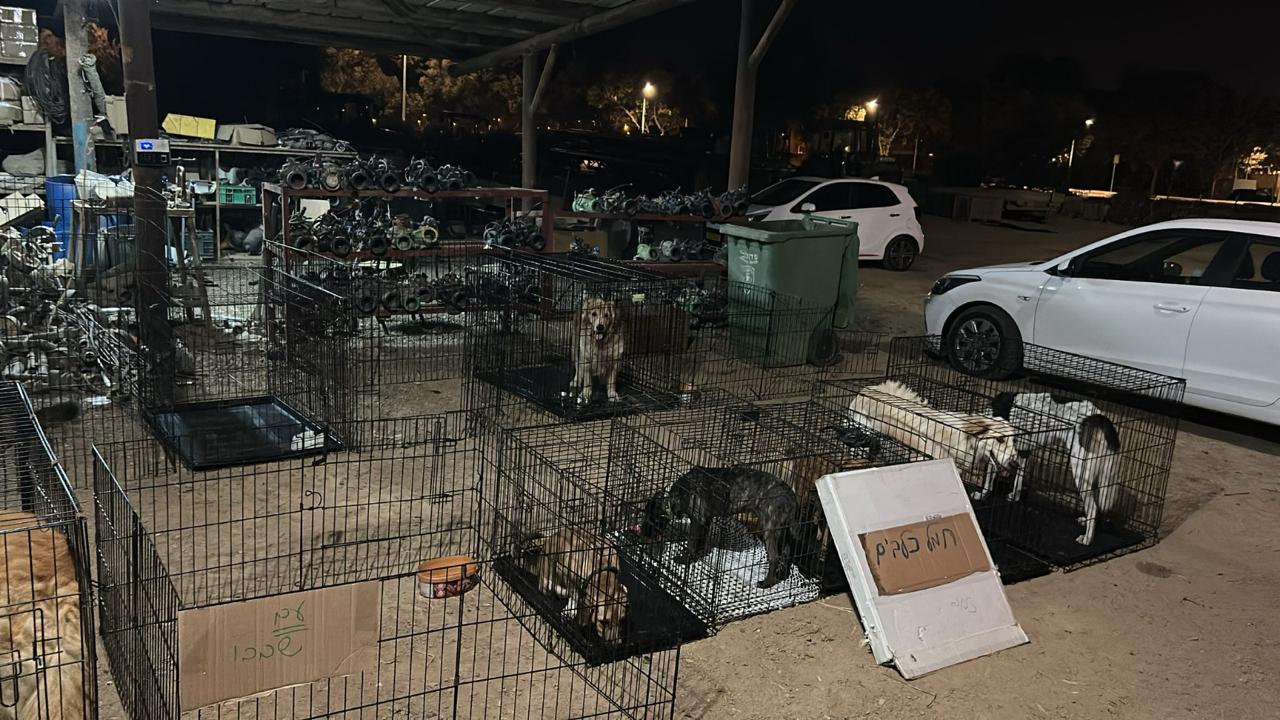
Dr. Shira Yishfa started the rescue operations, coordinating with two other operation rooms and rescuing around 1,200 dogs and cats.. (Courtesy Dr. Shira Yishfa)
A large number of the rescued dogs were returned to their owners because we could identify them, but about 75% of the dogs we rescued from the northern part of the Gaza envelope couldn’t be reunited with their families initially because many owners were either kidnapped, murdered, or unreachable
“A large number of the rescued dogs were returned to their owners because we could identify them, but about 75% of the dogs we rescued from the northern part of the Gaza envelope couldn’t be reunited with their families initially because many owners were either kidnapped, murdered, or unreachable. Eventually, we were left with around 170 to 175 dogs that we couldn’t match with any family,” she said.
We didn’t close our initiative until we placed each and every dog, whether it was reuniting them with families, finding foster homes, or permanent homes
“We didn’t close our initiative until we placed each and every dog, whether it was reuniting them with families, finding foster homes, or permanent homes. We circulated their photos and used face recognition software, but we still had some dogs we couldn’t match. Eventually, we found homes for all of them,” Dr. Yishfa explained.
These efforts have led to heartwarming stories of survival and new beginnings. The Media Line shares the stories of dogs that managed to find new families despite the horrors of war.
Story of Eshel
Eshel is a dog who was tied to Kibbutz Kissufim. Her owner, Reuven Heinik, 56, of Ashkelon, was a manager at a dairy farm there. On October 7, Hamas terrorists attacked the kibbutz, and Reuven was murdered. Before his death, he managed to release Eshel, who then escaped. The dog roamed the Gaza border for several days before being rescued by volunteers and brought to Hanna and Anastasia.
“On the morning of October 7, everyone was in shock. We had a party the night before and had gone to bed just a few hours before the attack. By 9 am, my boyfriend was called up for military service. There wasn’t time to panic or get too worried because we had to act quickly and do something,” Hanna recalls.
She shared that she and her friends started actively volunteering.
“We were exhausted but thought about how else we could help. We filled out an application from an organization that was asking for help with dogs found near the Gaza border and looking for their owners. We had experience with large dogs, so we decided to apply,” explained Hanna.
Shortly after, the girls gave a temporary home to Eshel.
“The dog was scared and reacted negatively to men, other dogs, and large vehicles, especially pickups. She was so scared that she would wag her tail and lie on her stomach if she did something wrong or saw someone arguing. She was clearly very loved but frightened and panicked when it rained,” Hanna shared with The Media Line.
Give the gift of hope
We practice what we preach:
accurate, fearless journalism. But we can't do it alone.
- On the ground in Gaza, Syria, Israel, Egypt, Pakistan, and more
- Our program trained more than 100 journalists
- Calling out fake news and reporting real facts
- On the ground in Gaza, Syria, Israel, Egypt, Pakistan, and more
- Our program trained more than 100 journalists
- Calling out fake news and reporting real facts
Join us.
Support The Media Line. Save democracy.
She explained that for them, Eshel was an island of peace as the girls couldn’t panic, knowing she would feel it intensely.
Sometimes, the sirens would catch us outside, causing Eshel great stress, but she didn’t avoid us, and we managed to hold onto her
“Sometimes, the sirens would catch us outside, causing Eshel great stress, but she didn’t avoid us, and we managed to hold onto her. The experience helped us establish a better sleep routine and get out more, as before, it was just the store, car, and home. But with her, we had to go for walks often,” said Hanna.
“Our house doesn’t have a bomb shelter, so during the sirens, we went to the stairs, and she calmly followed us. She knew where to go and led us to our safe place,” she added.
Eventually, Hanna and Anastasia found a new permanent home for Eshel.
“We visited several families to choose her next home, understanding our lifestyle wouldn’t allow us to spend much time with her once work resumed. We knew from the start that we couldn’t keep the dog despite wanting to. We found a wonderful family and Eshel seems happy and loved,” shared Hanna.
Oded, 50, from Modiin became a new family for Eshel.
“She was a little bit afraid, especially of noises like thunder or aircraft, but slowly she adjusted to the home and to the family and now she is okay. She has some friends, dogs that she meets every day in the garden, and she plays with them. Eshel is very cute,” he said.
Story of Shula and others
Eliran, 29, is an officer. As the war began, he was called to military service for three months. In the early days of the war, Eliran was serving near Gaza but later was moved to the West Bank, where he found and rescued a dog.
“We have a base in the West Bank, and every day we go on operations inside the village. We help wounded people and sometimes find animals. There are many dogs in very bad conditions. We bring them to our base and then try to find them homes.”
“Recently we saved five puppies and found homes for three of them. I took one of the last two to my house, intending to find her a home, but I fell in love and decided to keep her. I named her Shula,” he shared.
Eliran found the puppies in the middle of the West Bank without food or water.
“They were very skinny and small,” he recalls.
“We took all the puppies to our base, and they lived there for two or three months. We found homes for most of them, but there’s still one left,” he told The Media Line.
Eliran also shared that he and his team saved another dog just five days ago.
“He had been chained without enough food and water. He is very skinny and needs a lot of work to become a house dog.”
“The puppies are much easier because they are cute, and all the soldiers give them food and water. But the big dog is a challenge because he’s not used to people and can be aggressive. He’s a big dog, about 50 kilograms,” he explained.
Eliran is now hoping that all the dogs that the soldiers rescued will soon find a new home.
Story of Oz
Yulia Fedorov, 28, is a recent immigrant from Canada. In December, three months into the war, she was volunteering to help the soldiers when she noticed a dog at a military base.
“The soldiers were kind of giving him food but didn’t really know what to do with him. He was very sweet, skinny, and weak, so we decided to take him back with us,” she shared.
“It was a spontaneous decision because I didn’t want to leave him there. I wasn’t sure if he came from Gaza or a nearby kibbutz,” Yulia explained.
She told The Media Line that the dog seemed very domesticated, sweet, and friendly with people.
“Even though I wasn’t sure where he came from, he was still a puppy and had gotten used to people,” she said.
Eventually, Yulia took the dog and named him Oz, after the base where he was found.
“He didn’t know how to walk on a leash, so I carried him back to my apartment. He was too stressed out to pee or poo for the first two days. Training him from the beginning was challenging because he came straight from the wilds to me. He also had some health issues related to ticks, which took three months to clear. I couldn’t give him the surgeries he needed, like getting neutered, until then. But now he’s really healthy and has gained six kilos since December,” she shared.
“We go for a run together in the mornings, and a dog walker takes him out in the afternoon. When I come home from work, we go to the dog beach or the dog park. It’s really fun, and it has opened up my world more as I’ve met other dog owners and connected with people over similar things,” Yulia explained.
